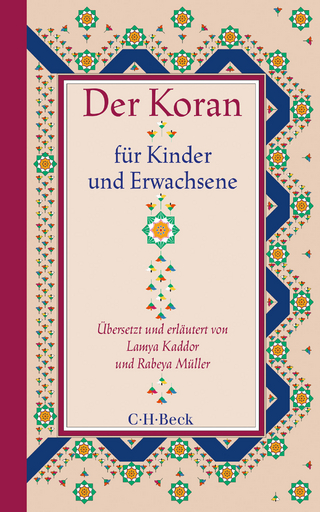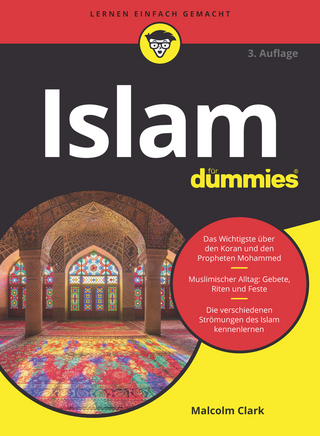
Antifragility of Islamic Finance
Peter Lang Publishing Inc (Verlag)
978-1-4331-4350-2 (ISBN)
The recent financial crisis has given rise to discussions on a new approach to risk management called antifragility. This concept specifies conditions under which systems become resilient to shocks caused by Black Swans—highly unpredictable outlier events that have a major negative (or positive) consequence when they occur, with their occurrence only explained retrospectively. Per this concept, the long-term survivability of any system centers exclusively on its antifragile nature, that is, its ability to absorb and even benefit from Black Swan–type shocks. This book aims to investigate risk-sharing Islamic finance as an antifragile system.
As a by-product of the Great Recession, the problems of debt-based financial systems are starting to be highlighted by industry and by academia. The antifragile solution for avoiding future financial crises is primarily centered on moving the existing financial system towards more equity and less debt, thereby introducing skin-in-the-game into financial transactions. This book introduces a model of a 100% equity-based financial system, centered on risk sharing, as a possible alternative to the contemporary debt-based, conventional financial system, which is based on risk transfer and on risk shifting. In essence, this book attempts to provide a practical model for an antifragile financial system by evaluating the characteristics of Islamic finance under the criteria of antifragility.
Umar Rafi specializes in the field of information technology in the financial services domain. He is currently working as a computer scientist in Silicon Valley. He has a BS in mathematics from the United States Air Force Academy, an MS in computer science from Wichita State University, and a PhD in Islamic finance from the International Centre for Education in Islamic Finance (INCEIF). Abbas Mirakhor joined INCEIF in 2010 as Distinguished Scholar and the first holder of INCEIF’s chair in Islamic finance. His research interests include conventional and Islamic economics and finance. Prior to joining INCEIF, he spent 24 years with the International Monetary Fund, serving as executive director and dean of the executive board. He is a graduate of Kansas State University, where he received his Bachelor, Master and PhD degrees in Economics.
List of Abbreviations – Glossary – Foreword – Prologue – The Inconsistencies of Financial Modeling – Introduction to Antifragility – Debt and Destruction – Risk and Reward – A Tale of Two Bubbles – Epistemological Foundation of RSIF – Risk-Sharing Islamic Bank Structure – Risk Management for Risk-Sharing – The Islamic Finance Antifragility Framework – Regulating (for) the Black – Of Ptolemy and Alchemy – Acknowledgements – Bibliography – Index.
“This is a must-read book for practitioners and policy makers contemplating a truly sound business model for Islamic finance. The book articulates well the superiority of risk-sharing based finance in comparison to debt-based finance by cleverly drawing the parallels of risk-sharing and antifragility (a new concept introduced by Nassim Nicholas Taleb). Its arrival is indeed timely to alleviate any remaining scepticism on the viability of risk-sharing finance as the model for the next generation of Islamic finance. Readers will appreciate the insightful analysis on the gaps of presently used statistical modelling, which if treated as a ‘black box’ could adversely influence financial and policy decision-making.”
—Siti Muawanah Lajis, Islamic Banking and Takaful Department, Bank Negara Malaysia
“The recent Great Recession has revealed a dramatic lack of resiliency of the current economic and financial system. Umar Rafi and Abbas Mirakhor have carried out an excellent in-depth analysis of the quantitative and qualitative underlying factors leading to the Great Recession, concluding with a deep insight on why and how to prevent and/or prepare for another one. They offer a unique transformational solution based on the disruptive concept of antifragility, which is gaining wide attention in the economic and financial community. This is a must-read book for anyone interested in evaluating and constructing an alternate financial and economic system, based on 100% equity that will offer more resiliency, to the current debt-based financial system that is extremely fragile.”
—Ken Tachibana, managing principal, Intelligence Capital
| Erscheinungsdatum | 06.07.2017 |
|---|---|
| Reihe/Serie | Finance, FinTech, and Crowdfunding in Islam ; 1 |
| Zusatzinfo | 16 Illustrations, unspecified |
| Verlagsort | New York |
| Sprache | englisch |
| Maße | 150 x 225 mm |
| Gewicht | 460 g |
| Themenwelt | Geisteswissenschaften ► Religion / Theologie ► Islam |
| Sozialwissenschaften ► Politik / Verwaltung ► Politische Theorie | |
| Sozialwissenschaften ► Soziologie ► Spezielle Soziologien | |
| Wirtschaft ► Betriebswirtschaft / Management ► Finanzierung | |
| Schlagworte | ABBAS • Alternative • Antifragility • FFCI • Finance • Isalmic • Islamic • Mirakhor • Rafi • Risk • Sharing • Umar |
| ISBN-10 | 1-4331-4350-X / 143314350X |
| ISBN-13 | 978-1-4331-4350-2 / 9781433143502 |
| Zustand | Neuware |
| Haben Sie eine Frage zum Produkt? |
aus dem Bereich


